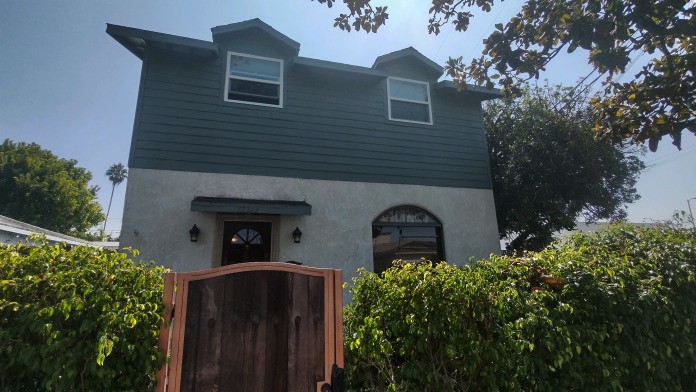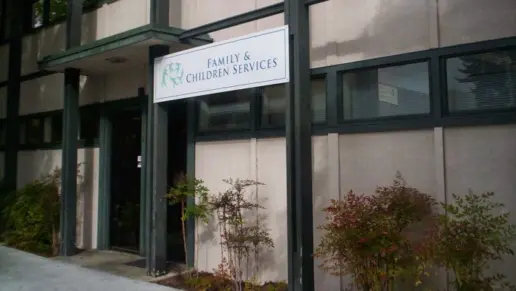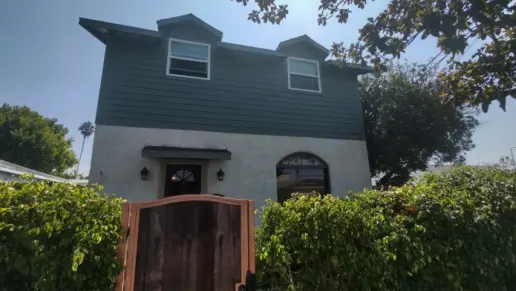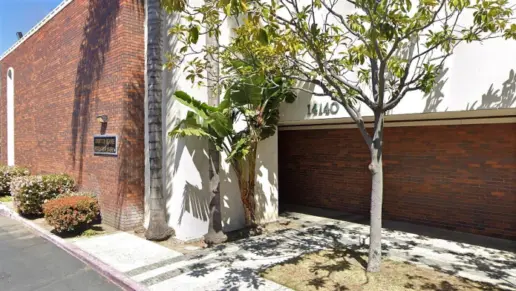About Gilmore House
Gilmore House Sober Living for Men is a private sober living residence located in West Los Angeles, California. Gilmore House specializes in support in a residential setting for men recovering from substance, drug and alcohol addiction.
The Gilmore House sober living residence is designed as a transitional living program for adult males in early recovery who may have unstable living environments that may make “going home” inadvisable. Although a transitional living residence is not a treatment program, residents have a continuing care plan that may include aftercare, relapse prevention, or a step-down level of care such as intensive outpatient following inpatient care that they are expected to actively engage in. Each resident signs an authorization with his/her treatment provider that permits the Project Coordinator to communicate with them regarding their progress, needs, etc. Additionally, each resident is expected to attend regular twelve step meetings and to have a sponsor in their 12-step program.
Comfortable furniture, 58″ HDTV and all amenities associated with home living are included. Food is provided; food preparation is the responsibility of each resident. The staff and everyone associated with the Gilmore House Sober Living are all sober members of Alcoholics Anonymous. They have lived through the hell of alcoholism and addiction and have found a way of life that is productive and useful.
The Gilmore House is located close to several MTA and Culver City bus lines, their sober living residents have easy access to work and to many local treatment and recovery resources. For rest and relaxation, they are located conveniently close to Marina Del Rey, Venice Beach, and Santa Monica. Common areas of the house include a kitchen with a dining area, living room, free washer and dryer, utility areas, and a spacious tree-lined garden and backyard area.
Gallery

Location
Other Forms of Payment
Self-pay involves paying for treatment out of your own pocket. You can use savings or credit, get a personal loan, or receive help from family and friends to fund your treatment. If you don't have insurance or your insurance plan doesn't cover a specific program, self-pay can help ensure you still get the care you need.
Addiction Treatments
Levels of Care
Treatments
The goal of treatment for alcoholism is abstinence. Those with poor social support, poor motivation, or psychiatric disorders tend to relapse within a few years of treatment. For these people, success is measured by longer periods of abstinence, reduced use of alcohol, better health, and improved social functioning. Recovery and Maintenance are usually based on 12 step programs and AA meetings.
Drug rehab in California teaches participants constructive ways to stay clean and sober. Treatment revolves around helping individuals stop using the substance they are addicted to and learn healthy habits to avoid relapse.
Opioid rehabs specialize in supporting those recovering from opioid addiction. They treat those suffering from addiction to illegal opioids like heroin, as well as prescription drugs like oxycodone. These centers typically combine both physical as well as mental and emotional support to help stop addiction. Physical support often includes medical detox and subsequent medical support (including medication), and mental support includes in-depth therapy to address the underlying causes of addiction.
Substance rehabs focus on helping individuals recover from substance abuse, including alcohol and drug addiction (both illegal and prescription drugs). They often include the opportunity to engage in both individual as well as group therapy.
Programs



Clinical Services
Life skills trainings involve all the skills a person must have in order to function successfully in the world. These include time management, career guidance, money management, and effective communication. Truly successful addiction recovery is based on the ability to not only live substance-free, but to thrive. Life skills teaches the practical necessities of functioning in society, which sets clients up for success in life, and therefore sobriety.
Amenities
-
Residential Setting
-
Private Setting
-
Private Rooms
Contact Information
12322 Gilmore Avenue
Los Angeles, CA 90066


